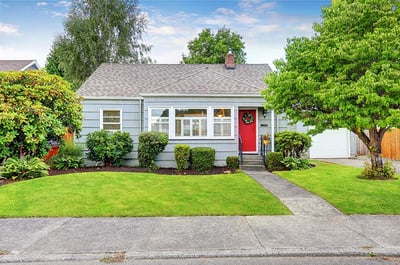Is a Roth IRA a Qualified Retirement Plan?

Qualified retirement plans are recognized by the IRS and meet requirements laid out in Section 401(a) of the U.S. tax code and ERISA guidelines. Most plans offered through your employer are qualified retirement plans and qualify for tax breaks. A Roth IRA is not a qualified retirement plan, but there are similar tax advantages for those planning for retirement.
Real Estate Tax Strategy for the Family Office

Very affluent families may establish a family office to manage their wealth. These entities usually serve family units with tremendous assets and complex needs. In addition to investment advice, the family office may provide tax and estate planning services and personal support in other areas. Historically, most family offices were not registered as investment advisers due to their private status. After the Dodd-Frank Wall Street Reform and Consumer Protection Act eliminated the exemption for private advisers, the Securities and Exchange Commission adopted a rule that defined family offices and excluded them from regulation under the Investment Advisers Act of 1940.
How Many Opportunity Zones Are There?

We’ve learned a great deal about Qualified Opportunity Zones ever since the initiative was passed as part of the Tax Cuts and Job Act (TCJA) of 2017.
How Many Retirement Plans Are There?

The sooner you prepare for retirement, the better. In fact, the recommendation is to begin saving as soon as you earn an income. Does that mean if you haven’t gotten a jump start on saving that you won’t be able to have a comfortable retirement? Absolutely not. There are so many retirement plans, all with different drawbacks and benefits depending on your age and financial situation. In fact, The Internal Revenue Service (IRS) lists 14 types of retirement plans.
Sponsor Risk and Its Role in Delaware Statutory Trust Entities

When going into a Delaware Statutory Trust (DST) investment, your DST Sponsor is just as important to your success as the property. What seems like a great property in a top location managed by an inadequate Sponsor could mean potential risk in your DST investment.
What Is An Insured Retirement Plan?

An insured retirement plan (IRP) is a strategy used to build a tax-deferred investment inside of a life insurance policy during your working years. When you retire, instead of withdrawing these funds directly from the life insurance policy, you use the policy as collateral on a loan. At retirement, you can establish an annual line of credit against the policy where the maximum loan percentage is connected to the type of investment within the policy. This strategy and the earnings on the money within the insurance policy and the loan from this policy act as a tax shelter for the investor.
An Overview of The Delaware Statutory Trust Act

In 1988, Delaware enacted the Delaware Business Trust Act, which was later changed to The Delaware Statutory Trust (DST) Act in 2002. The DST is a statutory entity that is governed by Chapter 38, Part V, Title 12 of the annotated Delaware Code. The DST Act was passed to allow a lawfully recognized and flexible alternative business entity and is periodically amended to allow developments in business practices.
How To Avoid Capital Gains Tax On Stocks

There are several methods a taxpayer can use to avoid or defer paying the capital gains tax on stock appreciation. The simplest is not to sell the stock, although even that is not a sure bet. First, remember that if you hold stock for less than a year and then sell it, the tax calculation will be for ordinary income rather than a capital gain. By keeping the security for one year, you are already enjoying the benefit of savings. Still, if the stock has appreciated considerably, the tax due on the capital gain may be significant as well. If you prefer to defer or avoid the tax on the growth, you may want to consider these options.
What Is The Purpose Of A Delaware Statutory Trust?

The small state of Delaware is a financial haven for corporations and investors due to many of its friendly ordinances. Delaware offers advantageous conditions to companies that incorporate there, including privacy and lower taxes than many other states. Delaware is also one of the few states in America with statutory trust law, in contrast to states using common law trusts. Delaware adopted the Delaware Business Trust Act in 1988 (and changed the name in 2002 to the Delaware Statutory Trust Act).
Mortgage Forbearance And Eviction Moratoriums

With the shutting down of the economy due to COVID-19, many tenants are without a job, which means they also can’t pay their rent. For landlords, this means a significant cut in property cash flow. However, because cash flows have been reduced doesn’t mean expenses have also been reduced. With active tenants on the property, expenses are likely to remain at previous levels. How do landlords survive in this type of situation?


